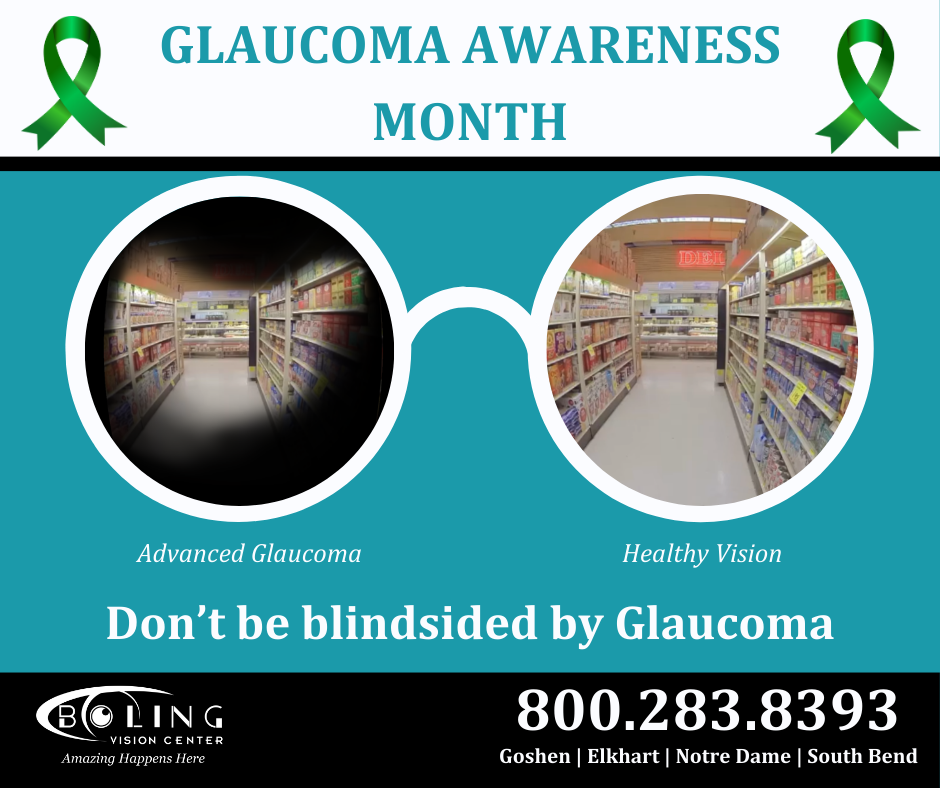
January is Glaucoma Awareness Month, an observance that aims to spread knowledge and information regarding the sight-stealing disease affecting over 70 million people, worldwide. Dr. Megan Heil, Ophthalmologist, at Boling Vision Center, sat down to answer a few of the frequently asked questions that she receives when working with glaucoma patients and/or their loved ones.
Q: What is glaucoma?
Glaucoma is a disease that causes damage to the optic nerve. The optic nerve is the nerve that sends visual information to the brain. The loss of vision starts with loss of the peripheral visual field and if it goes untreated, it will eventually affect all the way from the periphery to the center of the vision.
Q: Why is glaucoma known as “The Silent Thief of Sight’?
Glaucoma is known as “the silent thief of sight” because the loss of vision is typically painless and moves from the outer edges of the visual field, it is not noticeable by the patient until the disease has progressed to their central vision.
Q: What does glaucoma look and feel like to someone who struggles with the disease?
Unfortunately, there isn’t much of a “feel” with glaucoma since it is not usually painful. When someone has glaucoma, they may miss some or all of their peripheral vision or central vision depending on the severity of the disease. This can be particularly dangerous for patients who are driving because they are unable to see all objects in their periphery, which is necessary for safe driving.
Q: What do you want people to know about glaucoma? Do you have any tips for someone who feels they may be at risk?
I would like people to know that most cases of glaucoma are discovered incidentally at regular eye exams since patients are not usually symptomatic. This is why routine eye exams are important, even if the patient isn’t having any vision complaints. If you have a family history of glaucoma, routine exams are especially important! For most forms of glaucoma, the damage is slow so if it is discovered early, it is treatable, and patients maintain good vision. However, once damage from glaucoma has occurred it is not reversible, so it is important that it is caught and treated early.
Dr. Heil and our team of highly skilled physicians at Boling Vision Center are prepared to provide comprehensive compassionate care to anyone who may be at risk of this sight-steeling disease. Call us today at 800.283.8393 to schedule your dilated eye exam & stop glaucoma in its tracks!






